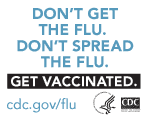Making Progress against Cervical Cancer
 Cervical cancer is highly preventable in most Western countries because screening tests and a vaccine to prevent HPV infections are available. When cervical cancer is found early, it is highly treatable and associated with long survival and good quality of life.
Cervical cancer is highly preventable in most Western countries because screening tests and a vaccine to prevent HPV infections are available. When cervical cancer is found early, it is highly treatable and associated with long survival and good quality of life.Virtually all cervical cancers are caused by human papillomavirus (HPV), a common virus that can be passed from one person to another during sex. There are many types of HPV. Some HPV types can cause changes on a woman's cervix that can lead to cervical cancer over time, while other types can cause genital warts.
HPV is so common that most people get it at some time in their lives, but HPV usually causes no symptoms so you can't tell that you have it. For most women, HPV will go away on its own; however, if it does not, there is a chance that, over time, it may cause cervical cancer.

Screening Tests
Two tests can help prevent cervical cancer:
- The Pap test (or Pap smear) looks for precancers, cell changes on the cervix that might become cervical cancer if they are not treated appropriately.
- The HPV test looks for the virus that can cause these cell changes.
The Pap test is recommended for all women. Talk with your doctor, nurse, or other health care professional about whether the HPV test is right for you. The most important thing you can do to avoid getting cervical cancer is to have regular screening tests.
If your Pap test results show cells that are not normal and may become cancer, your doctor will let you know if you need to be treated. In most cases, treatment prevents cervical cancer from developing. For more information, visit Making Sense of Your Pap and HPV Test Results.

Also available is Take Time to Save Your Life (![]() 3:27 mins), a podcast that features Dr. Mona Saraiya discussing how a Pap smear is performed and the age when women should begin having this test.
3:27 mins), a podcast that features Dr. Mona Saraiya discussing how a Pap smear is performed and the age when women should begin having this test.
HPV Vaccine
If you are 11 through 26 years old, you can help prevent cervical cancer by getting the HPV vaccine. It protects against the types of HPV that most often cause cervical, vaginal, and vulvar cancers, and is given in a series of three shots. The vaccine is recommended for 11 and 12 year old girls. It also can be given to females 13 through 26 who did not get any or all of the shots when they were younger.
What CDC Is Doing
HPV-Associated Cancers Study
According to a study led by CDC, about 25,000 cases of HPV-associated cancers occur each year. The report, "Assessing the Burden of Human Papillomavirus (HPV)-Associated Cancers (ABHACUS)," appeared in the November 15, 2008 supplement edition of the journal Cancer. To learn more about these kinds of cancer, visit HPV-Associated Cancers.
Free or Low-Cost Pap Tests
If you have a low income or do not have insurance, you may qualify for a free or low-cost Pap test through CDC's National Breast and Cervical Cancer Early Detection Program. To find out if you qualify, call your local program.
National Gynecologic Cancer Awareness Campaign
CDC developed Inside Knowledge: Get the Facts About Gynecologic Cancer to raise awareness of gynecologic cancers, including cervical cancer.
More Information
- Listen to or download a podcast
- Take Time to Save Your Life (
 3:27 mins)
3:27 mins) - Cervical Cancer (2007) (
 5:29 mins)
5:29 mins) - Pap Tests and Foreign-Born Women (2007) (
 6:38 mins)
6:38 mins)
- Take Time to Save Your Life (
- Basic Information about Cervical Cancer
- Información básica sobre el cáncer de cuello uterino
- Cervical Cancer Fact Sheet (
 2 pages, 852KB)
2 pages, 852KB) - HPV-Associated Cancers
- Inside Knowledge: Get the Facts About Gynecologic Cancer Campaign
- National Breast and Cervical Cancer Early Detection Program
- Scientific Articles about Cervical Cancer
- Human Papillomavirus (HPV)
- HPV Vaccination
- Pre-teen Vaccine Campaign



